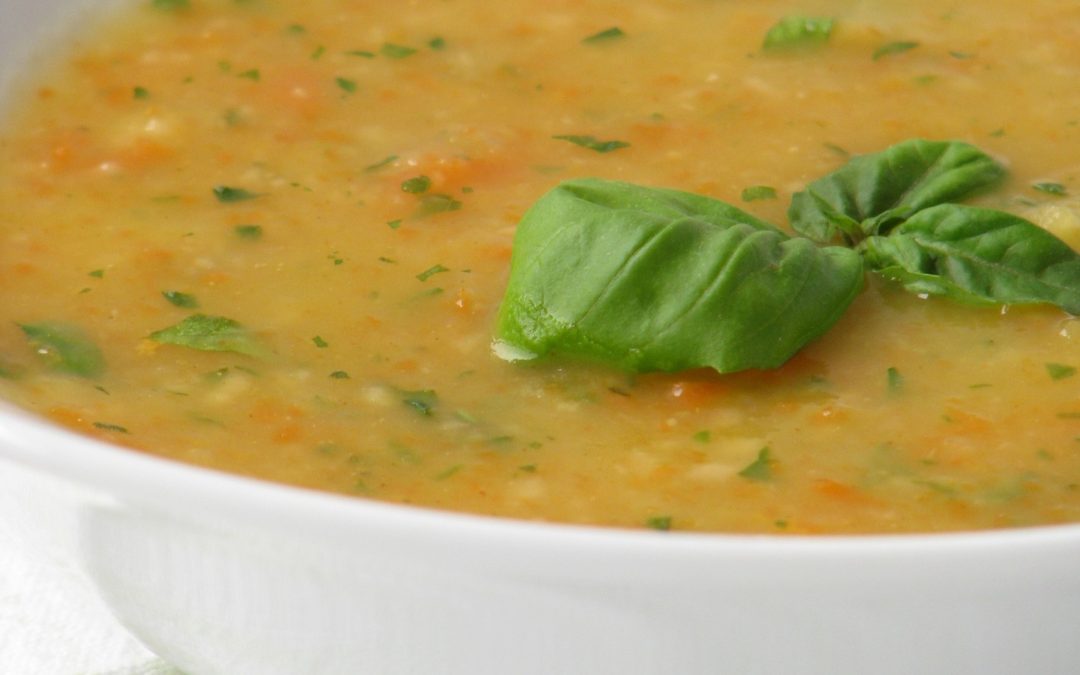Equinox Season is a time the body naturally cleanses – whether that is Spring or Fall. We think that means: ‘this is the time I get sick’. Well you can choose another path. If you work with the natural rhythm of the season, you can help your body get rid of the accumulated toxins that burden your immune system, through a cleanse. This doesn’t have to be onerous – you can just simplify your diet.
I regularly do a one – three week period of eating an easily digestible soup called Kitchari. The Ayurveda system, once unified with Yoga, suggests this as a way to promote longevity and good health. I find it so, and you’ll likely avoid the typical flu/sickness that occurs during these seasons.
If you choose to do 3 days, a week, 10 day or 3-week cleanse, you can eat khichari 1x or 2x or 3/x day. It’s very easy to digest and can help release toxic build up in the intestines. To do a deeper cleanse, eat one or two meals a day, and make them both simple soups (pureed or kitchari) and/or smoothies.
Have at least 12 hours between your last meal of the day and first of the next day.
Try removing all the big inflammatory type foods: Gluten, Dairy, Corn, Sugar, shellfish, peanuts, and the fruits you know agitate you in any way. Remove all processed foods, Industrial meats, farmed seafood. Keep it simple.
For some, all grains can be highly inflammatory. Others, some fruits – strawberries, citrus..
You might remove Nightshades: Tomatoes, Potatoes, Peppers, Eggplant, and Gogi berries.
After the cleanse, take time in re-introducing the foods – one at a time for a few days, to detect which create negative responses such as bloating, brain fog, lack of energy….
The Recipe:
Khichari Makes 4 servings (double or triple if you want to freeze some)
• 1 cup basmati rice
• 1 cup yellow mung bean or any Red lentil – or a combo of both.
• 1 Tablespoon kitchari spice mix (see below)
• 1 tsp turmeric, 1” piece of fresh grated ginger
• 2 tablespoons ghee or coconut oil
• 6 cups water or veggie broth
• 1–2 cups chopped vegetables (I like carrots, green beans, celery, onion, spinach &/or chard)
Wash rice and mung dal and soak overnight. Drain soak water and rinse.
In a medium saucepan warm the ghee/coconut oil. Add the Kitchari Spice Mix, turmeric, grated ginger and sauté for one to two minutes. Add rice and mung dal and sauté for another couple of minutes. Then add the liquid (water/broth) and bring to a boil. Once the kitchari has come to a boil reduce the heat to medium-low. Cover and cook until it is tender (approx. 30–45 minutes).
If you are adding vegetables to your kitchari, add the longer cooking vegetables, such as carrots, halfway through the cooking. Add the vegetables that cook faster, such as leafy greens, near the end.
Add more water if needed. Typically, kitchari is the consistency of a vegetable stew as opposed to a broth. A thinner consistency is preferable if your digestion is weak. You will notice that kitchari will thicken when it cools and you may need more water than you originally thought.
Kitchari Spice Mix: dry roast in a small cast iron skillet until aromatic; when cool, grind (can use a small smoothie blender, coffee grinder…)
• 1 teaspoon black mustard seeds (can use yellow if that is what you have)
• 1 teaspoon cumin seeds
• 1 Tablespoon coriander seeds
If you don’t want to make this spice mix, you can buy premade ones, or use ground versions of the seeds above and not worry about grinding them.
Garnish with fresh cilantro and add salt/pepper to taste.
You can make a big pot and freeze some of it, (in which case you might want to add fresh veggies once you thaw it). It makes meal preparation very simple for the duration of your cleanse, and you’ll have more time for other wonderful things in your life.
You will feel refreshed and renewed, ready for the cold of winter (or heat of summer). I hope you enjoy!

